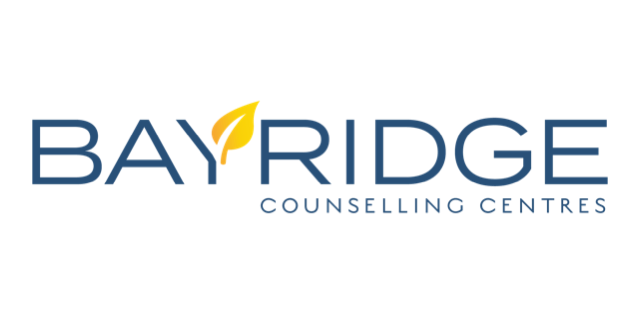HUMAN STRONG WORKSHOP
DBT Workshop - How Dialectical Behavior Therapy Can Help
Wednesday January 17th, 2024 @ 7pmLed by Holly Raymond MSW
Human Strong is a Bayridge Circle of Care Company
Learning Objectives
Dialectical Behavior Therapy (DBT) is a highly effective form of therapy that focuses on helping individuals develop skills to manage their emotions, improve interpersonal relationships, and cope with distressing situations. Rooted in eastern philosophies and adapted for western psychology, DBT offers a unique and engaging approach to therapy.
Understanding the Dialectic
At the heart of DBT lies the concept of the dialectic, which is the idea that two seemingly contradictory things can be true at the same time. In DBT, this means accepting that you are doing the best you can while also acknowledging that you have room for growth and improvement. This dialectic creates a balance between acceptance and change, allowing for personal growth and development.
Core Components of DBT
DBT consists of four core components that work together to help individuals build a life worth living:
Mindfulness
Mindfulness is a key element of DBT, focusing on being present in the moment and fully experiencing the here and now. It involves paying attention to your thoughts, feelings, and sensations without judgment. The practice of mindfulness helps cultivate awareness and acceptance, empowering individuals to make choices that align with their values.
Distress Tolerance
Life is full of challenges and stressors. DBT equips individuals with practical strategies to tolerate and survive distressing situations. By learning effective coping mechanisms, such as self-soothing techniques and distraction strategies, individuals are better equipped to navigate difficult emotions without resorting to harmful behaviors.
Emotional Regulation
Emotions are a natural part of being human, but sometimes they can become overwhelming and lead to destructive behaviors. DBT provides tools and techniques to help regulate and manage emotions effectively. Through the identification and understanding of emotions, individuals can develop healthier ways of responding to emotional triggers.
Interpersonal Effectiveness
Building and maintaining healthy relationships is crucial for overall well-being. DBT teaches individuals how to effectively communicate, set boundaries, and solve problems in their relationships. By improving interpersonal skills, individuals can foster healthy connections and create a supportive network.
Engaging Techniques in DBT
DBT incorporates various engaging techniques to enhance the therapeutic process:
Role-playing: Individuals are encouraged to act out different scenarios to practice new skills and strategies in a safe environment. This hands-on approach allows for experiential learning and reinforces positive behaviors.
Homework assignments: Between therapy sessions, individuals are given homework assignments to practice newly acquired skills in their daily lives. These assignments serve as a bridge between therapy and real-life situations, promoting continuous growth and application of learned techniques.
Validation: In DBT, validation plays a crucial role in creating a supportive and empathetic therapeutic environment. Therapists validate individuals' experiences and emotions, promoting a sense of acceptance and understanding.
Collaborative Treatment Planning: DBT is a collaborative process, with therapists and individuals working together to set treatment goals and develop personalized strategies. This collaborative approach ensures that therapy aligns with the individual's unique needs and values.
Conclusion
Dialectical Behavior Therapy offers an engaging and effective approach to therapy, empowering individuals to navigate life's challenges and cultivate a life worth living. By incorporating mindfulness, distress tolerance, emotional regulation, and interpersonal effectiveness, DBT equips individuals with the skills they need to thrive mentally, emotionally, and socially.
Interested in Joining Other Workshops?
Check Out the Monthly Workshop Schedule.
Online workshops are open to all Human Strong users. Although the workshops can have limited seating, you're welcome to join as many workshops as you like. We value the community and encourage you to share this workshop with friend & family.
Share on Social
Meet the Workshop's Therapist:
Holly Raymond MSW
Focus: Children, Teens, Adults. Individuals, Couples, Families. Substance use, All Mental Heath Diagnoses, Emotional Dysregulation, Stress, Anger Issues, Trauma, Self-Acceptance, Self-Esteem, Parenting, Infidelity, Self-Care, Forgiveness and Letting Go, Grief and Loss, Relationship Issues, Accepting Change, Self harm.
I have worked in health care for the last 23 years. For 17 of those years, I worked at St. Josephs Healthcare Hamilton where I was employed as the Clinical Supervisor for Womankind Addiction Services, managed in-patient, and out-patient mental health services, was instrumental in starting the first fully integrated in-patient Concurrent Disorder program in Canada, and the Rapid Access Addiction Medicine Program (RAAM).
For my last 4 years at St. Josephs Health Care Hamilton I worked as the Director of Acute Mental Health Services overseeing Womankind, Men’s Addiction Service Hamilton, The RAAM Clinic, Coast, the Psychiatric Emergency and 4 inpatient units.
For 13 years I have also operated my own private practice treating patients presenting with a variety of issues, Previously I was employed at CAMH, Alcohol Drug and Gambling Services, Mens Addiction Service and McMaster University in the Centre for Student Development.
I graduated from the University of Toronto with a Masters in Social Work and in 2000 from the University of Regina with a Masters in Health Administration.
For my last 4 years at St. Josephs Health Care Hamilton I worked as the Director of Acute Mental Health Services overseeing Womankind, Men’s Addiction Service Hamilton, The RAAM Clinic, Coast, the Psychiatric Emergency and 4 inpatient units.
For 13 years I have also operated my own private practice treating patients presenting with a variety of issues, Previously I was employed at CAMH, Alcohol Drug and Gambling Services, Mens Addiction Service and McMaster University in the Centre for Student Development.
I graduated from the University of Toronto with a Masters in Social Work and in 2000 from the University of Regina with a Masters in Health Administration.
